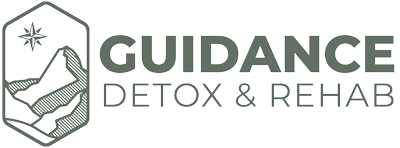Detoxification, commonly called “detox”, is the preliminary step in the substance use disorder recovery process that can lead to greater health improvements, but it should be viewed as part of a comprehensive treatment plan that includes continued support and behavioral therapies. It plays a significant role in enhancing physical and mental health, making it a vital component of the recovery journey.
In this article, you’ll find out more about the essence of detox, how the process works, what to expect from it, and tips for effective detoxing.
What is Detox and Who Needs It?
Detoxification is a medical process of removing addictive substances and toxins from the body. Individuals who have developed a physical dependence on substances such as drugs or alcohol will find that their brain and body have adapted to the regular consumption of these substances.
This adaptation often leads to increased tolerance, meaning that users may require higher doses to achieve the same effects. When an individual suddenly stops the use of these substances, they may experience withdrawal symptoms. These symptoms can vary significantly in severity, ranging from mild discomfort to potentially life-threatening conditions.
For those battling addiction, opting for professional drug detox like the one we provide at Guidance Detox in Utah is the first step to reclaim your sobriety and overall well-being.
The Detox Process
Detoxification serves the dual purpose of managing withdrawal symptoms and paving the way for further treatment. By addressing the physiological aspects of dependence, this part of the treatment process can help your body stabilize, improving your chances for a successful, sustained recovery from addiction to harmful substances and long-term sobriety.
Detoxification generally consists of the following three primary phases:
Evaluation Phase
The evaluation phase involves trained medical professionals assessing your physical and mental health to develop a tailored treatment plan based on your specific needs. This assessment is crucial for identifying any underlying health issues, such as co-occurring mental issues, and determining the appropriate detox strategy.
Stabilization
Stabilization is the second phase, where the focus shifts to achieving a medically stable condition while addressing acute symptoms. This phase is essential for ensuring that the individual’s vital functions are monitored and supported while detoxification removes toxins from the body.
Withdrawal Management
The final phase, withdrawal management, seeks to ease discomfort and mitigate any potential complications as the body adjusts to the absence of the substance in question. When you detoxify, common withdrawal symptoms may arise, including anxiety, tremors, nausea, and insomnia. The severity of these symptoms often correlates with the type of substance involved and the extent of dependency.
Why Detox is Essential in Recovery
Detoxification addresses safety concerns by managing the potential for life-threatening complications associated with severe withdrawal symptoms. Since some drugs have worse withdrawal effects than others, professional detox ensures appropriate medical supervision tailored to the specific substance involved. The detox process also aids in the restoration of physical health, allowing for the recovery of organs that may have been negatively affected by substance abuse.
As the influence of drugs and alcohol diminishes, their effects on the mind decrease, which can enhance focus during therapeutic interventions and the development of critical recovery skills.
From an emotional standpoint, a detoxification program can contribute to stabilizing mood fluctuations and alleviating symptoms of anxiety or depression, which can create a more conducive environment for rehabilitation.
Detoxification serves as a foundational step in the recovery journey, facilitating the transition away from dependency and preparing individuals for subsequent evidence-based treatment interventions and lifestyle changes.

Benefits of Medical Detox
Medical detox is characterized by continuous monitoring by healthcare professionals, which is crucial for addressing any complications that may occur during withdrawal. This level of supervision enables timely interventions when necessary, reducing potential health risks associated with withdrawal symptoms.
If you’d like to understand more about how medical and non-medical detox compare, you can read this detailed guide on the differences between medical and non-medical detox.
Medical professionals use several techniques during detox, including:
- Medication-Assisted Detox: This is the most common approach, where specific medications are administered to alleviate withdrawal symptoms and cravings. For example, benzodiazepines may be used to reduce anxiety and seizures during alcohol withdrawal, while methadone or buprenorphine can help manage opioid withdrawal. These medications are carefully dosed and tapered to minimize discomfort and prevent complications.
- Tapering: Instead of abruptly stopping substance use, clinicians gradually reduce medication doses over time. This controlled reduction helps prevent severe withdrawal symptoms and rebound effects, allowing the body to adjust slowly.
- Medical Monitoring: Throughout detox, vital signs such as heart rate, blood pressure, respiratory rate, oxygen levels, and temperature are continuously monitored. This vigilance helps detect any medical emergencies early and ensures patient safety.
- Supportive Care: Patients may receive intravenous fluids to prevent dehydration, nutritional support to replenish deficiencies, and medications to treat specific symptoms like nausea, insomnia, or pain. This holistic care supports the body’s healing during detox.
- Rapid Detoxification (Under Sedation): In some cases, particularly for opioid addiction, detox may be performed under anesthesia or sedation to reduce the conscious experience of withdrawal symptoms. While controversial and not suitable for everyone, this technique can accelerate the detox process and improve patient comfort.
- Holistic and Behavioral Support: Alongside medications, some programs incorporate therapies such as acupuncture, massage, meditation, and behavioral counseling to address the emotional and psychological aspects of withdrawal and prepare patients for ongoing recovery.
These medical detox techniques collectively aim to make the withdrawal phase safer and more tolerable, reducing the risk of relapse and facilitating a smoother transition into subsequent addiction treatment stages.
Myths and Misconceptions About Detox
Despite the documented advantages of medical detox, several misconceptions about the detoxification process continue to circulate. It’s essential to recognize that detoxification doesn’t serve as a standalone solution for addiction; rather, it represents an initial phase in a broader addiction treatment strategy.
Attempting to undertake detox at home is inadvisable due to the significant medical risks it poses, which can result in severe health complications.
Withdrawal symptoms experienced during detox can differ greatly among individuals. Contrary to some beliefs, not every person encounters overly intense or unmanageable symptoms.
It’s also important to note that while detoxification aims to eliminate harmful toxins from the body, the regimen doesn’t expunge all toxins.
What Happens After Detox
Commitment to ongoing treatment and active participation in a structured recovery plan are key to establishing a solid foundation for sustained sobriety.
After completing detoxification, individuals typically move on to the next stage of addiction treatment, which may include either inpatient or outpatient care, along with therapy and participation in support groups.
During this phase, individuals collaborate with trained professionals like therapists and counselors to explore the underlying factors contributing to their addiction. Treatment aims to develop effective coping strategies and establish a robust support network.
Engaging in group therapy and 12-step programs can facilitate peer support, which is critical for accountability and encouragement.
Final Thoughts from Guidance Detox and Rehab
Engaging in detox can facilitate the transition into further therapeutic approaches, allowing individuals to engage more effectively in rehabilitation programs. Therefore, detox should be considered a necessary step in the broader context of addiction treatment, rather than a standalone solution.
At Guidance Detox and Rehab, we believe detox is a powerful first step toward lasting wellness. In our serene and luxurious mountain retreat, we provide expert-guided, medically supported detox programs designed to assist your body’s natural healing and restore your clarity, energy, and peace of mind.
